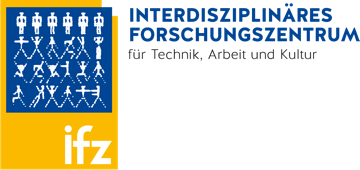Reindl, Katharina | Sveden

Katharina Reindl is a doctoral candidate at the department of Thematic Studies - Technology and Social Change since fall 2012 at the University of Linköping, Sweden. She did a Bachelor and Master of Art in Sociology at Karl-Franzens University of Graz in Austria. After that she did Master of Science in Sustainable Development at the University of Linköping, Sweden. Her research interests are environmental issues, sustainable development and climate change. Currently she is working mainly with energy efficiency in the residential sector, construction and renovation processes.
Project at IAS-STS: The role of energy efficiency in renovation processes - How building professionals integrate energy in building renovations
My work is about how built environment professionals integrate energy efficiency into the renovation processes of multi-family dwellings. Energy use in buildings in Sweden and EU represents 40% of the total energy use. A major challenge is thereby the existing building stock regarding energy efficiency since the new building rate is relatively low. Thus, renovation plays a crucial role for reduced energy consumption now and in coming years. But how, when and why some energy efficient measures are included or not in a renovation project is very much decided by professionals during the renovation process. These decision making processes are in focus for my research. How and why are certain energy efficiency measures promoted or rejected?
I have followed three renovation projects in a municipality-owned housing company in a middle-sized Swedish town. This housing company has set the goal to reduce the amount of purchased energy by 25% to 2025 (compared with 2011 figures). For the three renovation projects I followed there is also an explicit goal for improved energy efficiency. The focus has been on the planning and design phase of the renovation process since it is in this phase measures to be implemented are determined and decided upon.
I conducted 25 participant observations of planning and design meetings, further I interviewed all involved building professionals. This included members of the housing company as well as external consultants such as architects, construction engineers, HVAC or El consultants. The three renovation objects come from the post-war period and were built between the 1950’s and 1960’s.
Conclusions are that the planning process is structured with pre-defined agendas that makes the process efficient but not flexible. Innovations and alternative or creative ways of thinking have a difficulty to access the process, thus the planning process is not designed for brainstorming and new solutions. The building professionals usually selected measures for the renovation as well as energy efficiency measures that they have used before. Energy calculations and statistics attracted little interest and had little impact on the process for the building professionals. Experience (rule of thumb) and tacit knowledge is valued more important i.e. measures or solutions tried in a previous project, were valued much more than figures and statistics. There is also no common objective in the planning and design phase for the involved professionals. All this leads to a renovation process where energy has a hard time to enter the process.
Selected Publications
Palm, Reindl (2016): Understanding energy efficiency in Swedish residential building renovation: A practice theory approach. Energy Research and Social Science, 11 (2016) 247-255
Palm, Reindl (2014): Energy efficiency in renovation processes with focus on time and timing. Conference proceeding. World Sustainable Building, October 28/30th 2014
